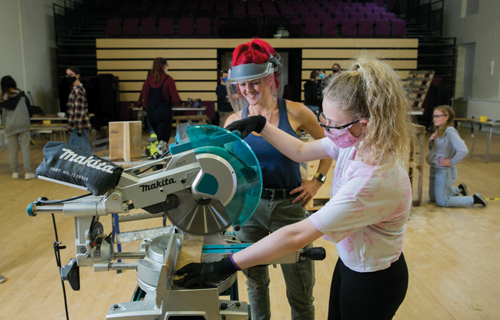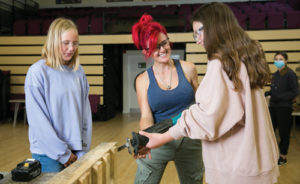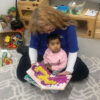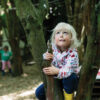
by Dinah Hatch
Brighton Girls
Ever since former prime minister Tony Blair set out his priorities for office back in the 1990s with the clarion call “education, education, education”, British schools have ploughed an ever more academically rigorous furrow in a bid to widen access to university amongst 18 year olds.
But many commentators, including the influential Lord Baker, a former education minister in Margaret Thatcher’s government, fear the pendulum may have swung too far, with the pursuit of highly academic subjects often resulting in practical, hands-on skills being kicked off the curriculum.
Lord Baker has even called for GCSEs, the very qualification he introduced in 1988, to be abandoned, saying that examining 16 year olds has become largely pointless and unduly stressful now that none of them leave education at that age and do not need proof of their capabilities to show employers.
But his calls have so far fallen on deaf ears in government. Michael Gove’s commitment to axing the course-work component of exams and focusing on on-the-day performance further swung the pendulum towards rewarding academic skills when he was education secretary and nothing has changed since.
Yet a growing number of educationalists are calling for a rethink, saying that Britain has fallen behind other countries when it comes to manufacturing and engineering because the skills needed to excel in these fields are simply not being taught as much.
If you look at Austrian, Swiss, German or Dutch students, by the time they’ve reached 18, some 70-80% of them have had some experience of technical education. In Britain, it’s just 30%.
The social commentator David Goodhart addresses the theme of focusing on academia to the detriment of other paths in his book Head, Hand, Heart: the struggle for dignity and status in the 21st century. He talks about how education in the last century in the UK has become ever more focused on the ‘head’ (academics) and left behind the skills of the ‘heart’ (those needed for social care, for example) and the ‘hand’ (practical skills). The result has been that those who did not naturally excel in the first category but who were gifted in one or both of the other two were not valued as much in society.
This has led to a disproportionate amount of people heading to university to pursue academic subjects, he says, at the cost of other pathways that the economy and society needs.
At last, however, schools are starting to take note, particularly independent schools which have their own budget and are not led by government edicts on education policy.
There has been a growing push from this sector to acknowledge that the teaching of many practical skills have been neglected.
Brighton Girls recently hit the headlines with the news that its headteacher had introduced extra-curricular lessons in the use of power tools, as part of a wider remit to encourage more creativity and problem solving.
 Head Rosie McColl has hired welder, blacksmith and creative metalwork upcycler Charis Williams, known on TV as The Salvage Sister having featured on Channel 4’s Fill Your House For Free and BBC One’s Getting The Builders In, to hold workshops and run weekly sessions for her pupils aged 11-18.
Head Rosie McColl has hired welder, blacksmith and creative metalwork upcycler Charis Williams, known on TV as The Salvage Sister having featured on Channel 4’s Fill Your House For Free and BBC One’s Getting The Builders In, to hold workshops and run weekly sessions for her pupils aged 11-18.
The school is also in the process of revamping its DT offering and has appointed a head of design and innovation who will start at the school in September.
Ms McColl said: “When I was at school, DT and the like were seen as non-academic and people were a bit sniffy about it. I think that’s changed now – people realize that children need to have lessons that allow them to explore their creativity and lateral thinking, which is exactly what these sessions with Charis are doing. Currently, we are undergoing a huge school revamp which will include areas called Maker Spaces where pupils will have supervised access to power tools, 3D and laser printers, sewing machines and the like and we are hoping it will unleash a side in the girls that they might not know they even had. I believe 21st century schooling needs to be so much more than exam grades and remembering when the Battle of Hastings was. It’s about problem solving, working in teams and thinking creatively.”
And the power tools lessons have been a hit with her pupils.
Esme McGrath, 14, took part in one of the first classes held by Ms Williams where pupils were shown how to use the tools with the goal being to create outside furniture for the school from wooden pallets.
The Year 9 pupil said she felt much more confident about the prospect of creating furniture, having never really used tools like this before. She said: “It’s been really fun learning something like this and it makes it real when you actually get shown how to do it. It opens up new possibilities about what I could do and it makes a lovely contrast to my academic studies.”
Year 11 pupil Kirsty Gallagher added: “I think it’s great that we are trying our hand at something practical and useful. Who knows where it will lead to and what we will learn along the way.”
Ms Williams added: “I aim to change the stereotype and make 3D creative skills available to everyone. Pupils learn to use tools which will be massively helpful if they like to make things or go into a creative career – and most importantly it’s really good fun. Many adult students come to me to learn to use basic power tools skills because they have never had the chance before and have always wanted to learn.”
For more information, visit www.brightongirls.gdst.net











